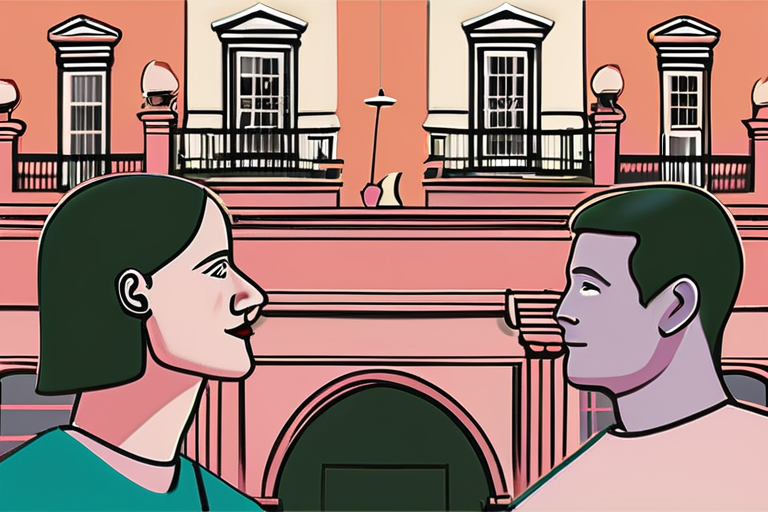Understanding Alzheimer's Risk: Can You Change Your Fate?
A personal account of a family's struggle with Alzheimer's disease has sparked curiosity about the role of genetics and lifestyle in preventing the condition. Matt Chinworth, whose father was diagnosed with Alzheimer's at 75, is now 43 and wants to know his own risk level.
According to Dr. David Bennett, a neuroscientist at Rush University Medical Center, "Alzheimer's disease is a complex condition influenced by both genetic and lifestyle factors." Bennett notes that the misfolded proteins thought to underlie Alzheimer's can begin to build up in the brain as early as age 40.
Chinworth's family history is a stark reminder of the disease's impact. His father, grandfather, and great-grandmother all suffered from Alzheimer's, leading him to wonder if he too will be affected. "I'm trying to understand what my risk is and whether there's anything I can do about it," Chinworth said.
The idea that lifestyle factors such as diet and exercise can prevent or slow the progression of Alzheimer's has gained traction in recent years. However, experts caution against oversimplifying the relationship between these factors and the disease.
"While a healthy lifestyle may reduce one's risk, it is not a guarantee against developing Alzheimer's," said Dr. Richard Isaacson, a neurologist at Weill Cornell Medicine. "Genetics play a significant role in determining an individual's risk."
Recent studies have shed light on the concept of cognitive reserve, which refers to the brain's ability to adapt and compensate for age-related changes. Research suggests that individuals with higher cognitive reserve may be better protected against Alzheimer's.
The development of AI-powered tools is also helping researchers better understand the complex interplay between genetics and lifestyle factors in Alzheimer's disease. "Machine learning algorithms can analyze vast amounts of data, including genetic information and lifestyle habits, to identify patterns and predict an individual's risk," said Dr. Eric Reiman, a neuroscientist at the Banner Alzheimer's Institute.
As research continues to advance, individuals like Chinworth are left with more questions than answers. Can a DNA test reveal their hereditary risk? What lifestyle changes can they make to reduce their chances of developing Alzheimer's?
While there is no definitive answer yet, experts agree that understanding one's risk and making informed lifestyle choices can only benefit overall health.
Background:
Alzheimer's disease affects over 5 million Americans, with numbers expected to triple by 2050. The condition is characterized by the buildup of misfolded proteins in the brain, leading to cognitive decline and memory loss.
Additional Perspectives:
Dr. Bennett notes that while lifestyle factors may play a role in preventing Alzheimer's, "there is no magic bullet." He emphasizes the importance of addressing underlying health conditions, such as diabetes and hypertension, which are known risk factors for the disease.
Chinworth's story highlights the emotional toll of living with a family history of Alzheimer's. "It's not just about me; it's about my loved ones who will be affected by this disease," he said.
Current Status and Next Developments:
Researchers continue to study the complex interplay between genetics and lifestyle factors in Alzheimer's disease. The development of AI-powered tools is expected to accelerate research, providing new insights into the condition.
As individuals like Chinworth navigate their risk level, experts urge caution against relying solely on genetic testing or lifestyle changes. "Alzheimer's is a multifaceted condition," said Dr. Isaacson. "We need to consider all factors when assessing an individual's risk."
Ultimately, understanding Alzheimer's risk requires a comprehensive approach that incorporates both genetics and lifestyle factors.
Sources:
Matt Chinworth, personal account
David Bennett, neuroscientist at Rush University Medical Center
Richard Isaacson, neurologist at Weill Cornell Medicine
Eric Reiman, neuroscientist at the Banner Alzheimer's Institute
*Reporting by Newscientist.*



 Hoppi
Hoppi

 Hoppi
Hoppi

 Hoppi
Hoppi

 Hoppi
Hoppi

 Hoppi
Hoppi

 Hoppi
Hoppi











